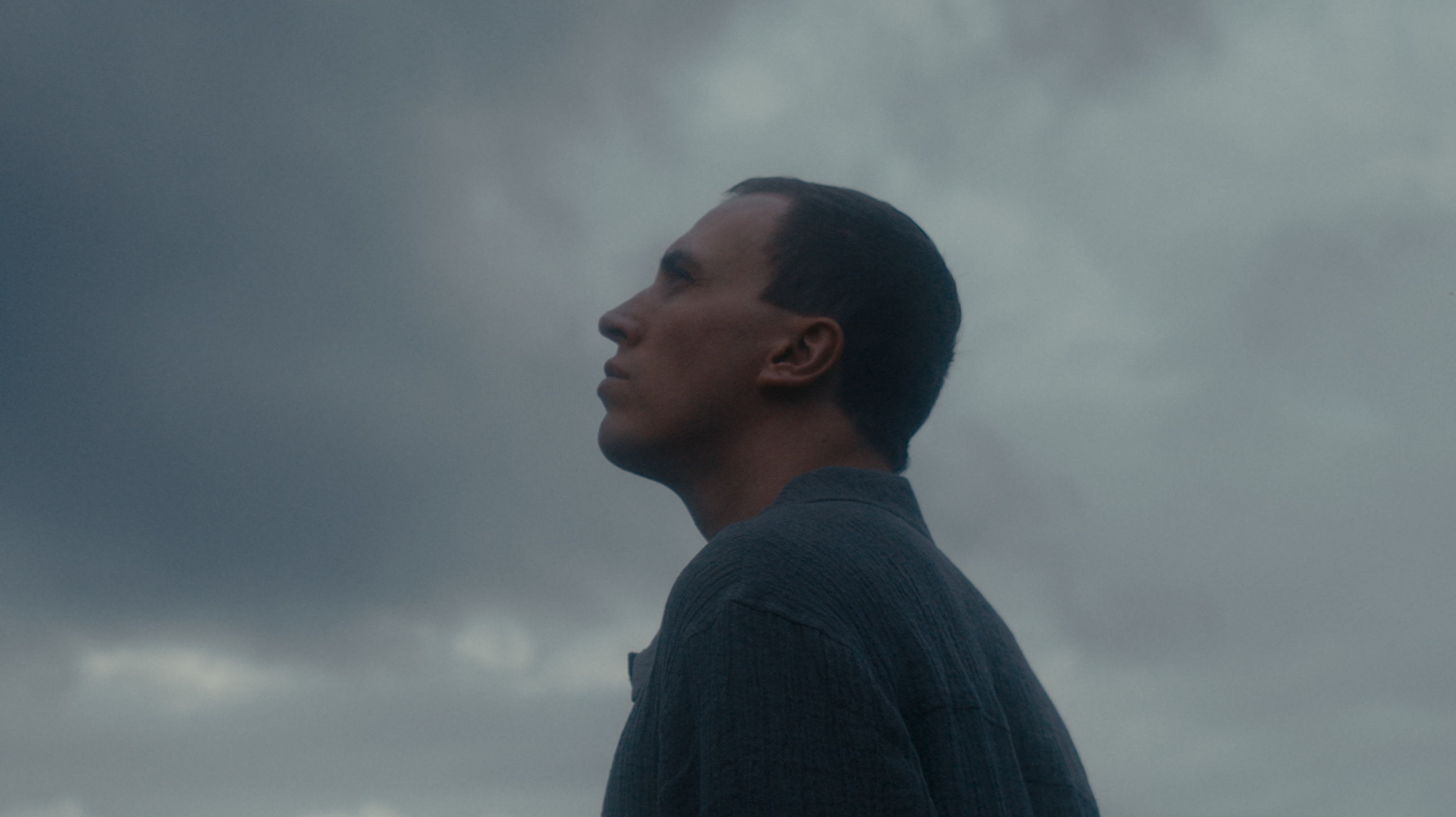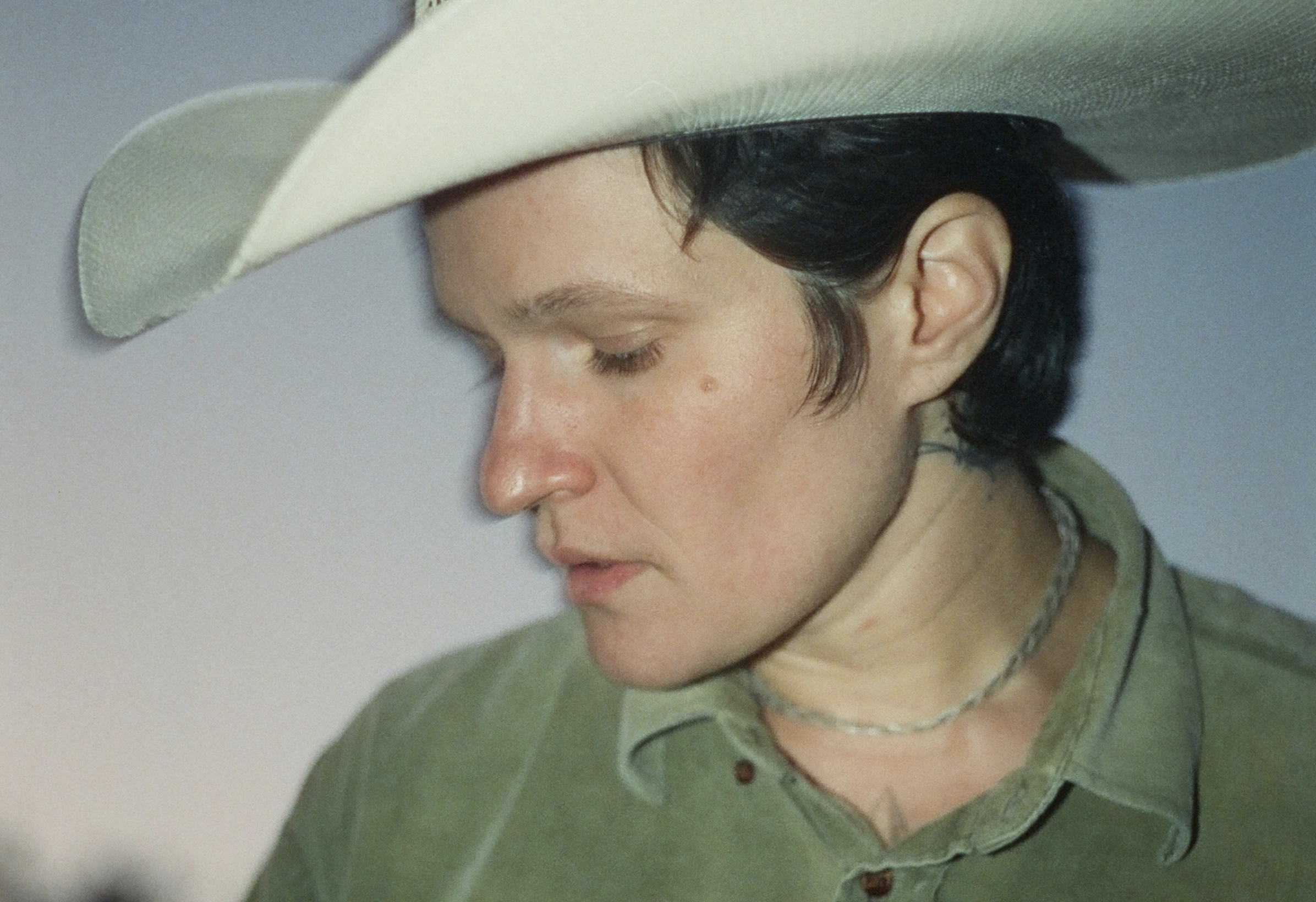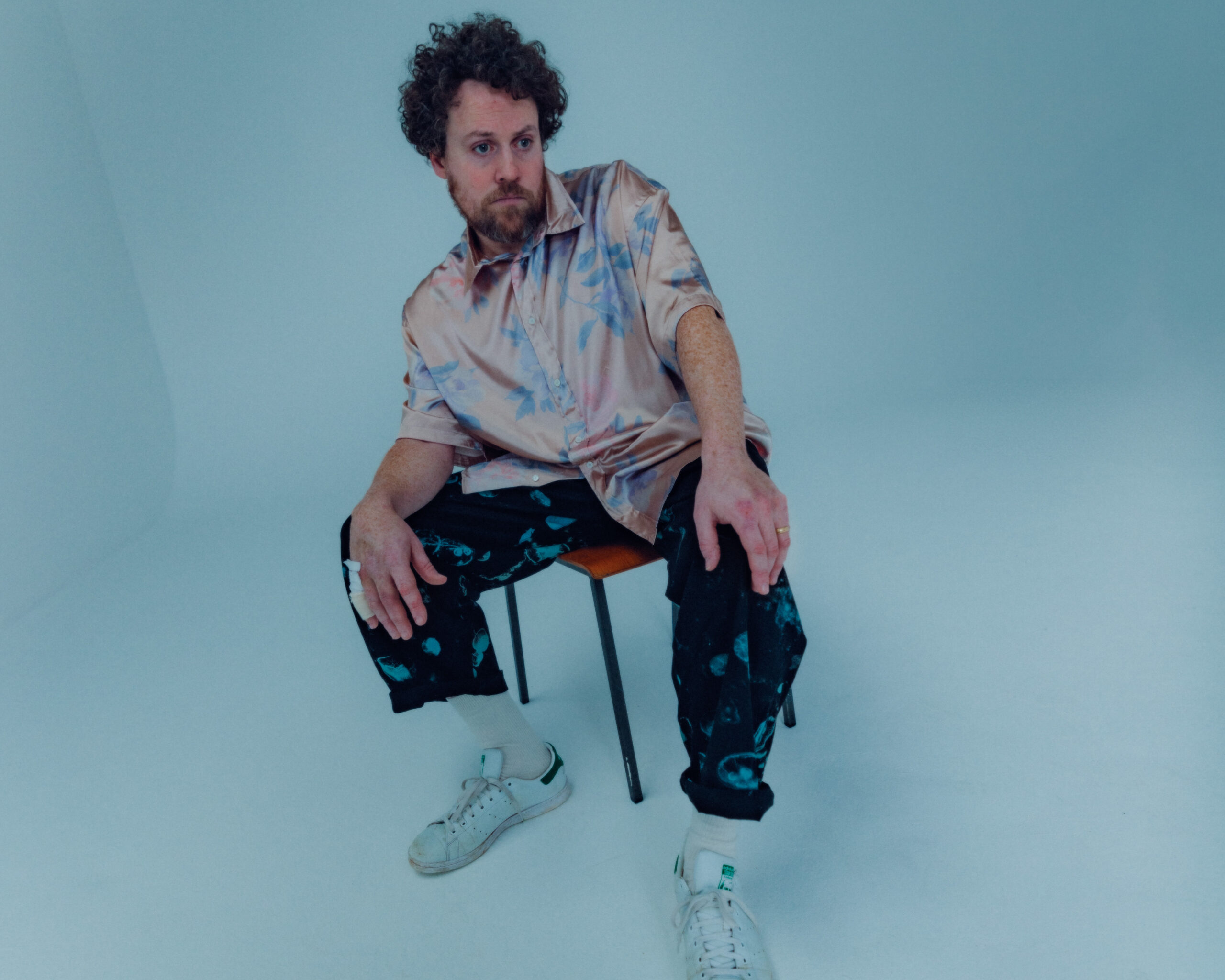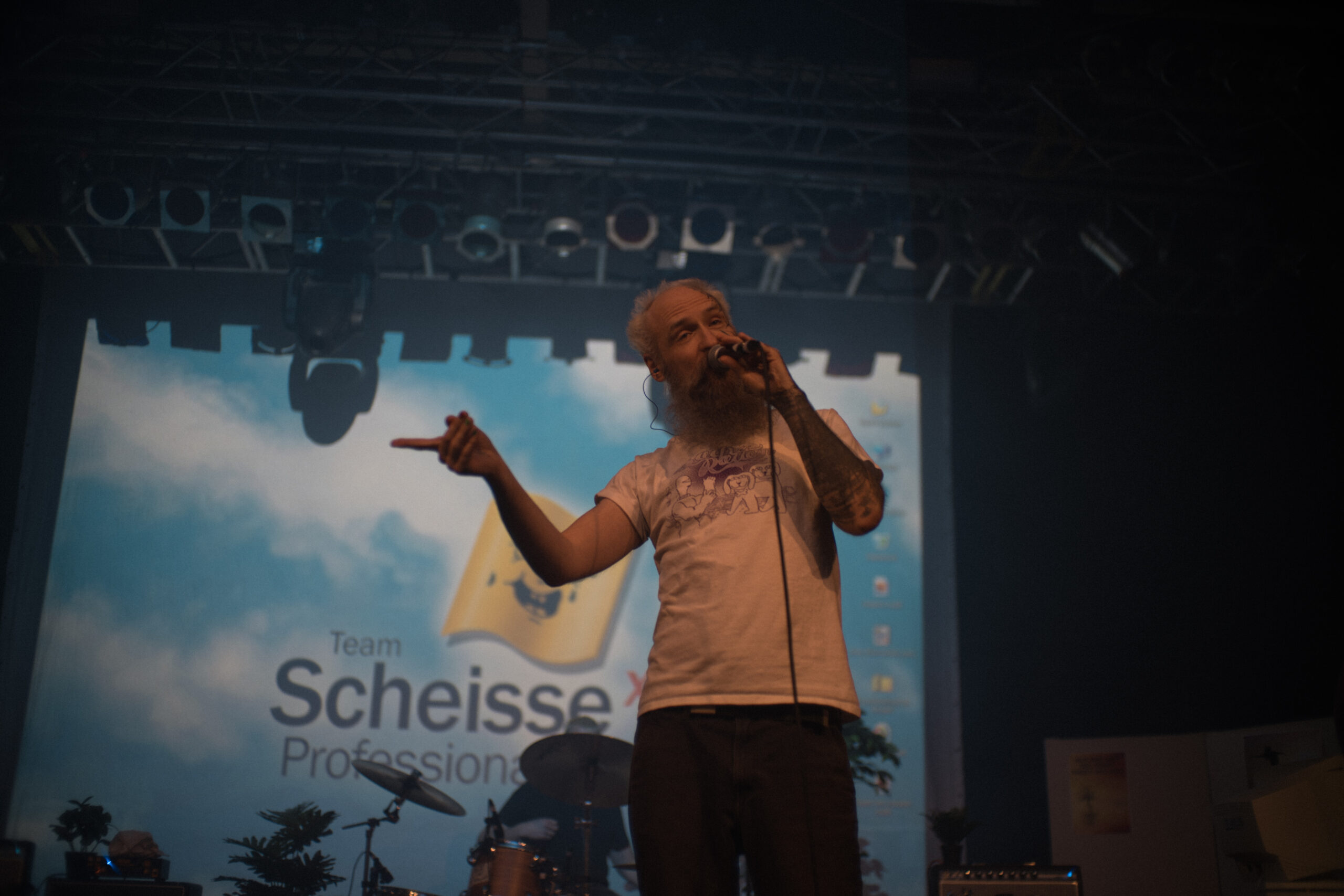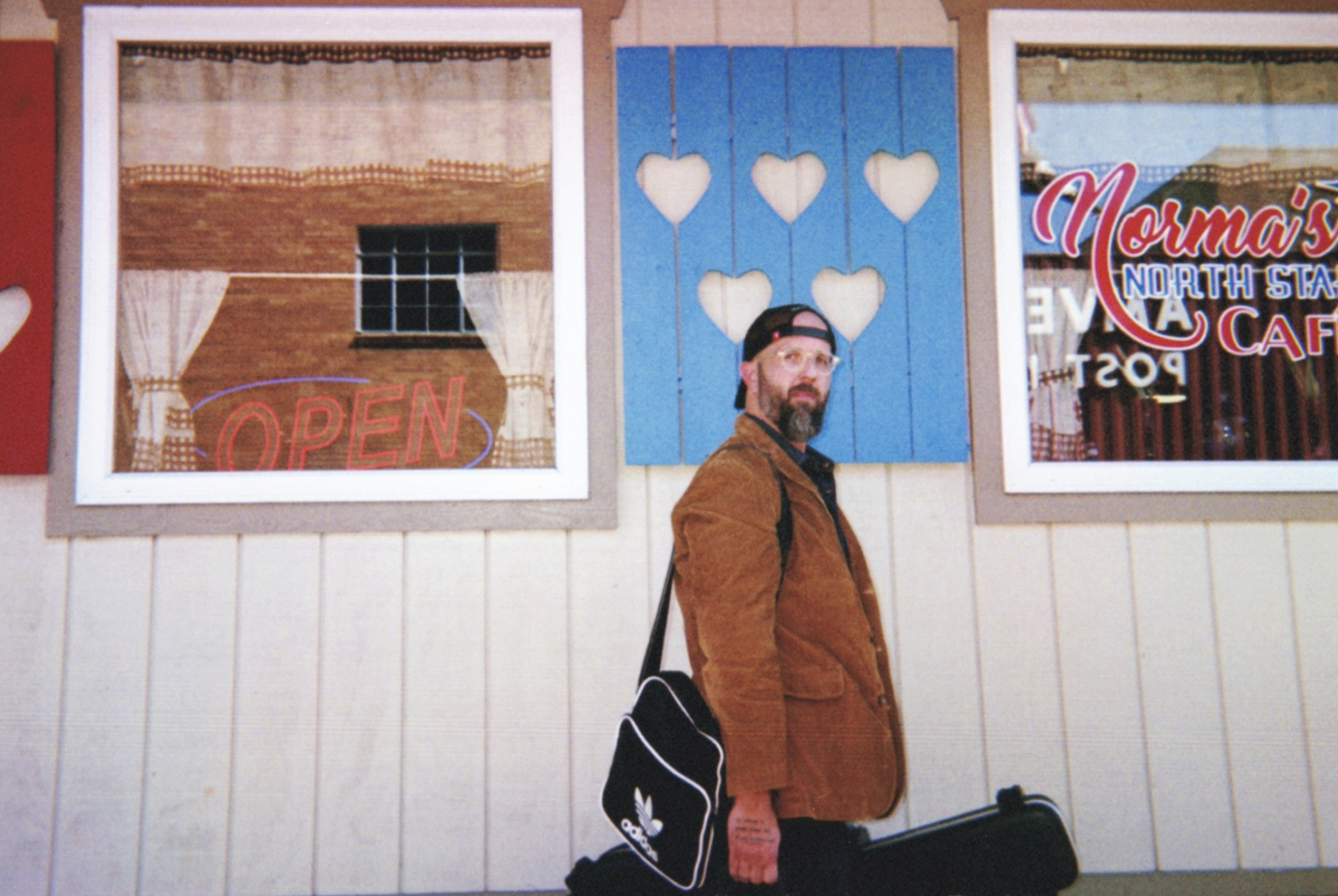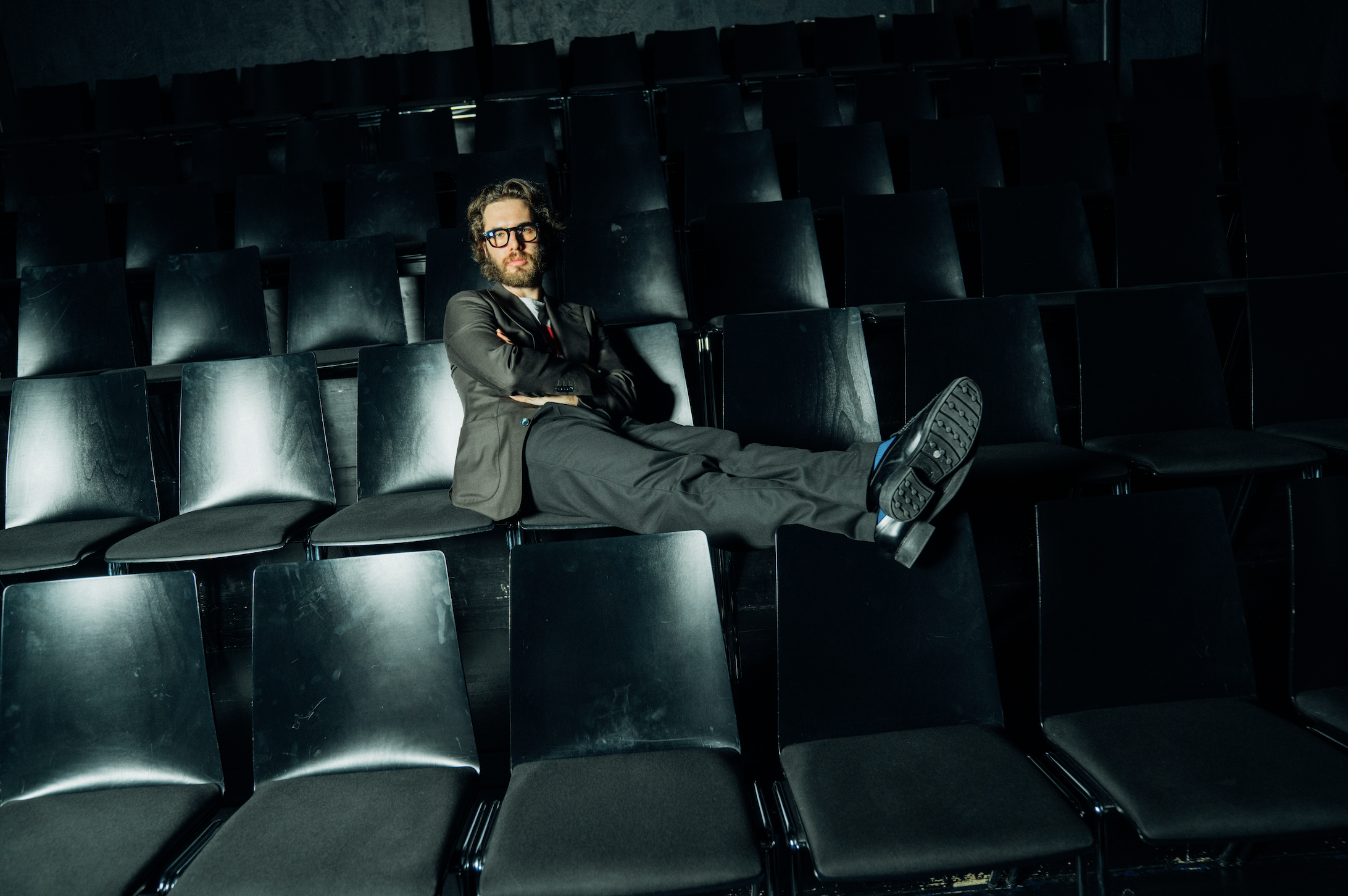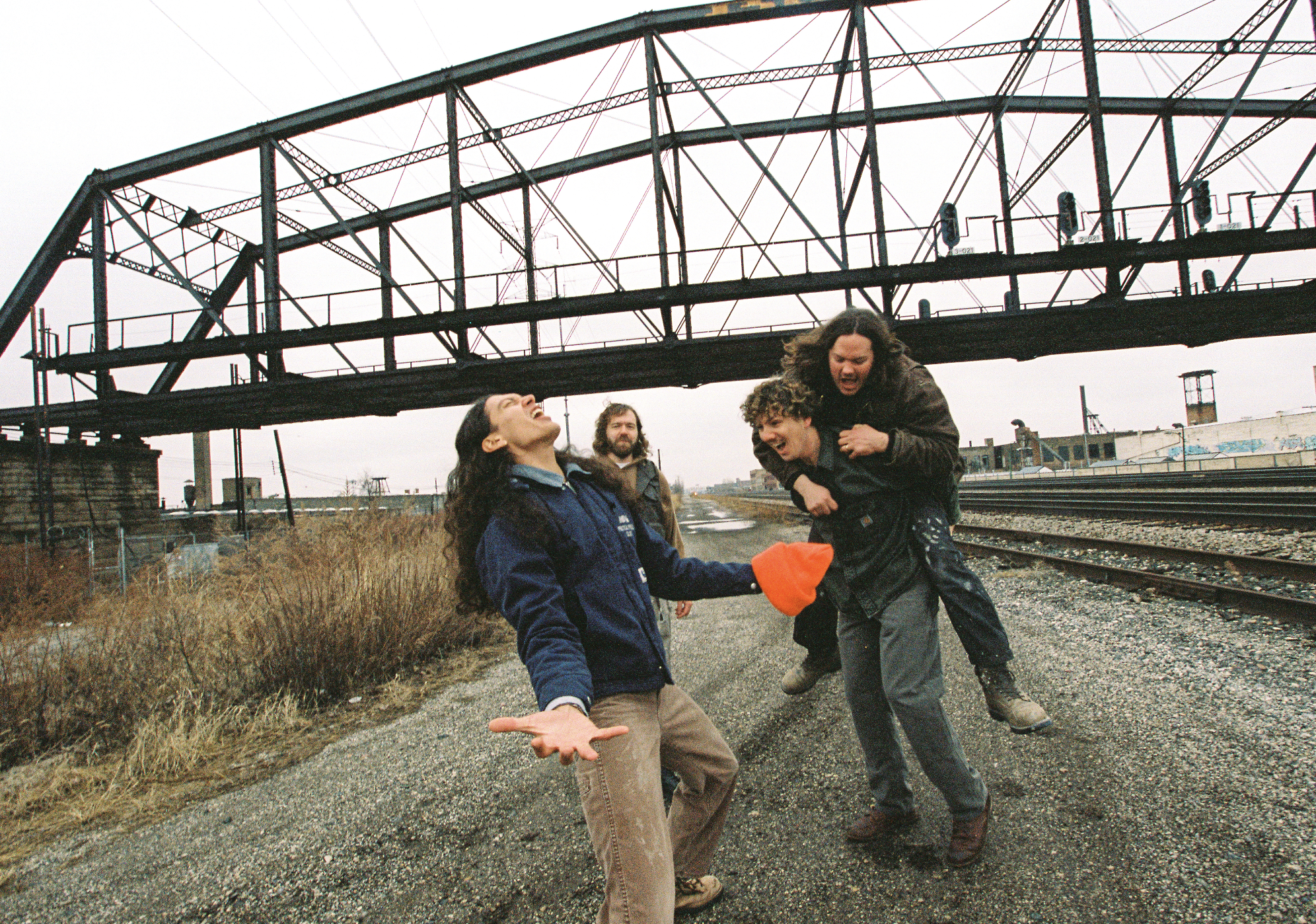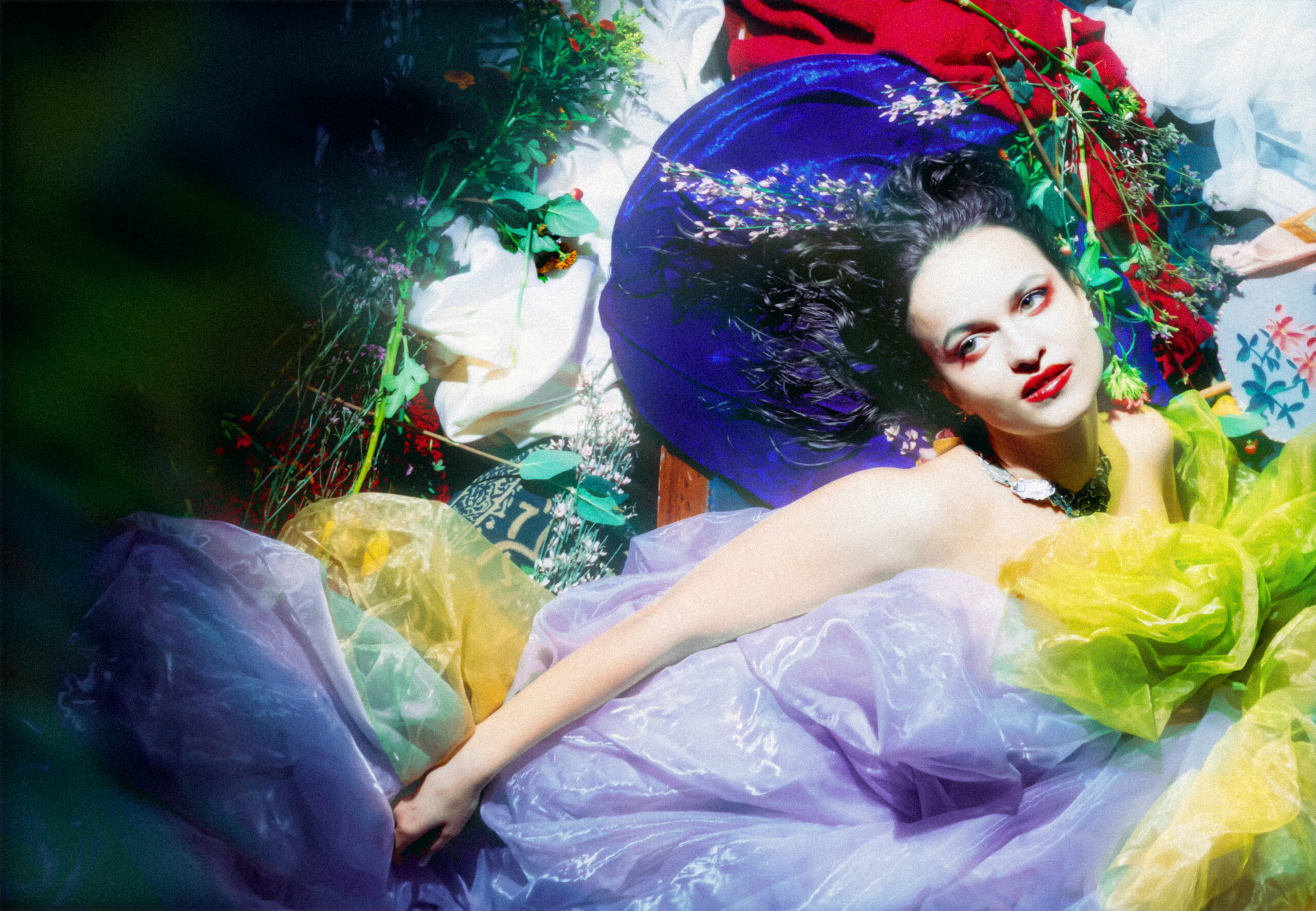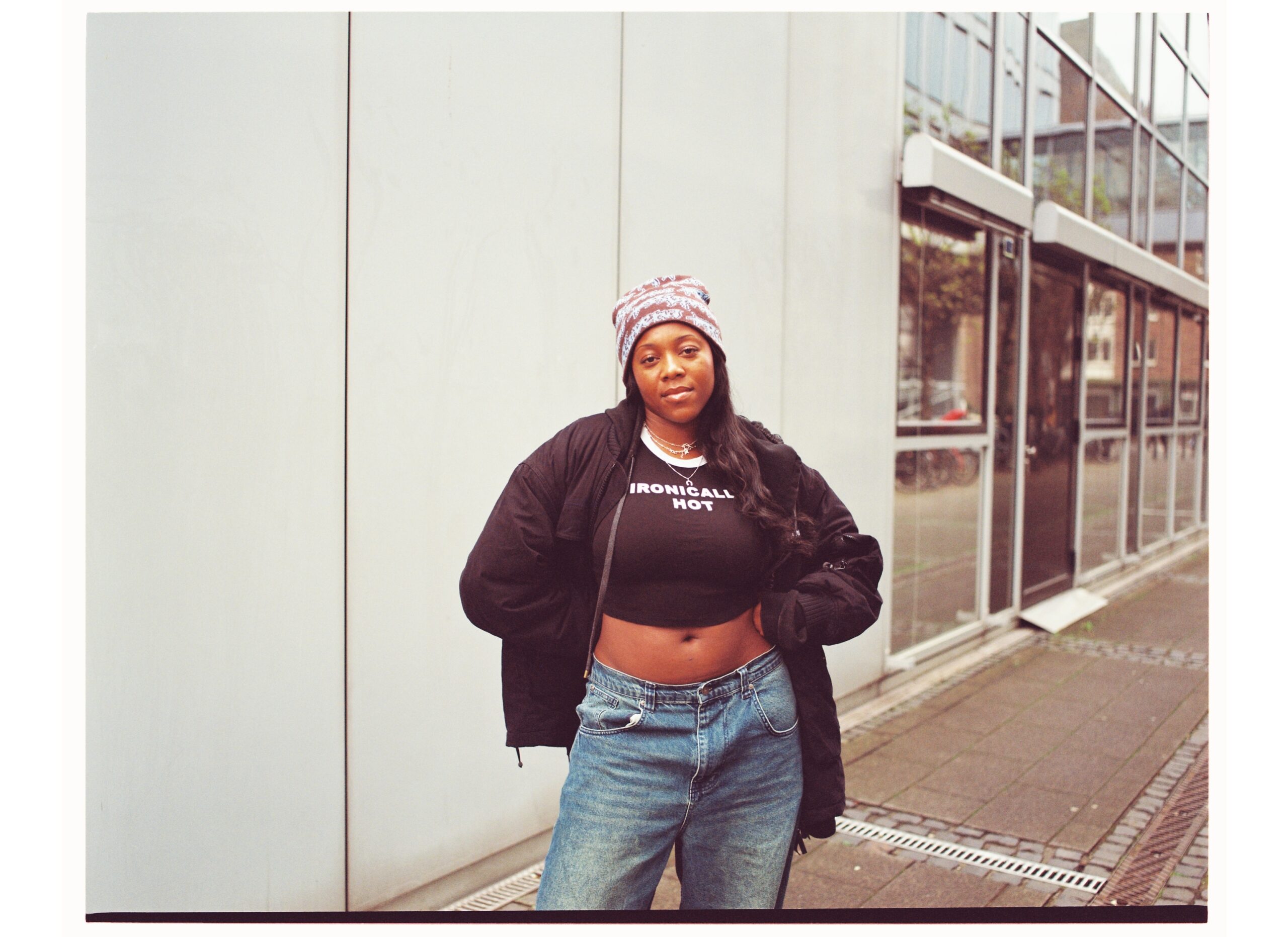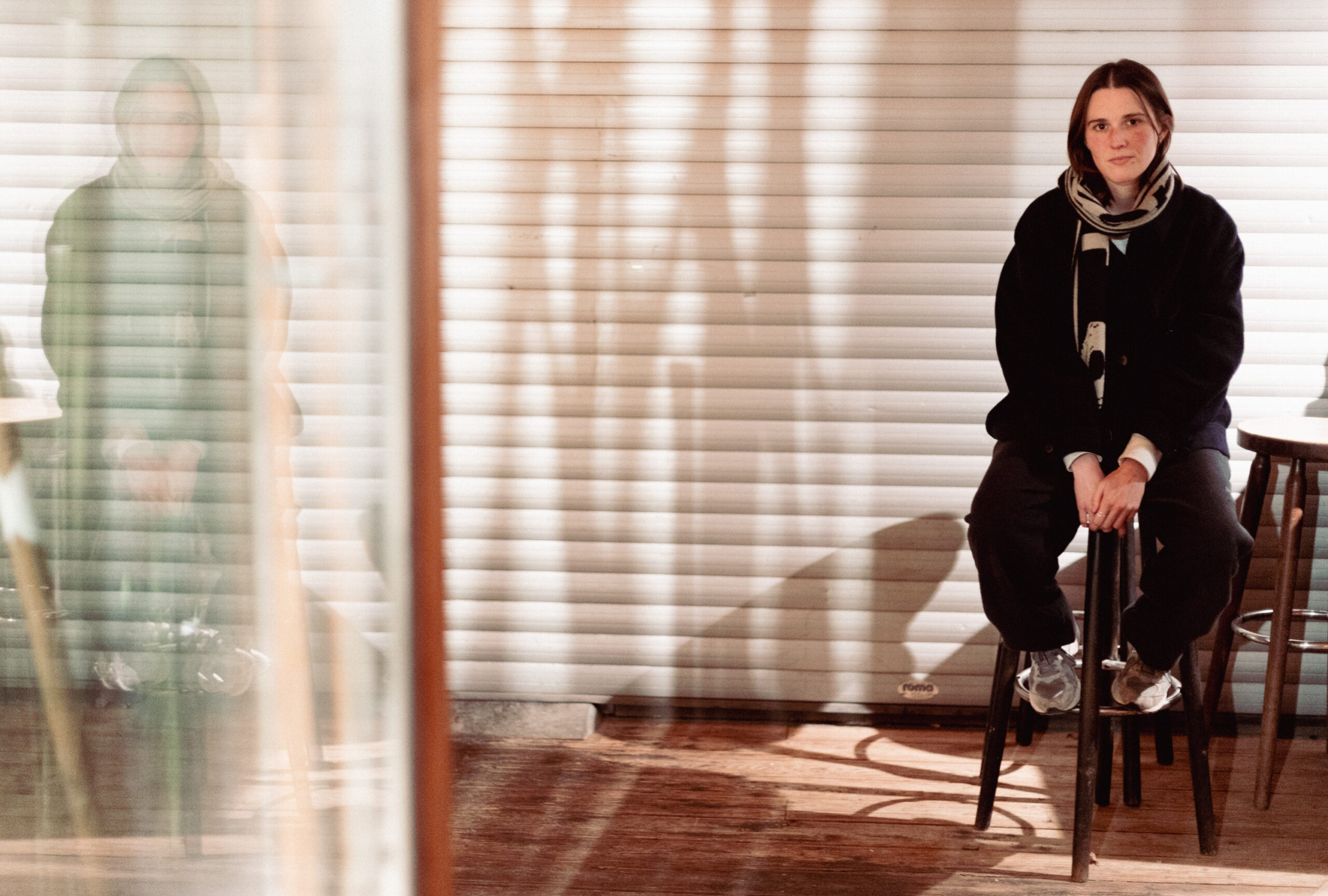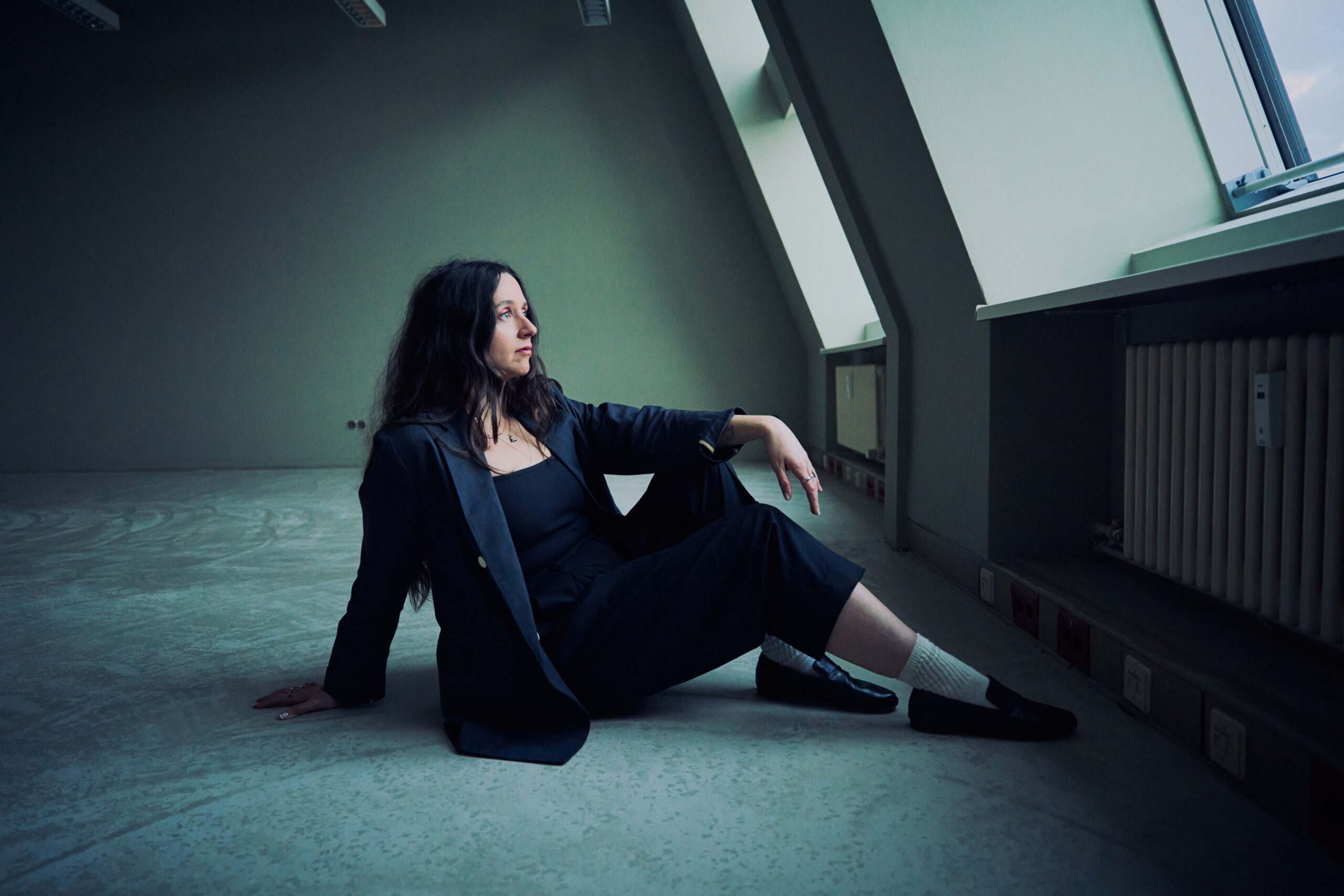2007 gründete sich das Trio School of Seven Bells als Ergebnis daraus, dass die Mitglieder der Band zuvor in anderen musikalischen Projekten nicht wirklich glücklich geworden waren. Seitdem veröffentlichten Benjamin Curtis, Alejandra Deheza und ihre Zwillingsschwester Claudia Deheza zwei Alben, mit denen sie für immer mehr Aufsehen sorgten. Zuletzt erschien vor kurzem ihr drittes Album ‘Ghostory‘, das zugleich das erste Album markiert, das nur noch von Benjamin und Alejandra als Duo produziert wurde. Wir haben den männlichen Teil der Band mit Fragen gelöchert und viel interessantes erfahren – School of Seven Bells im Bedroomdisco Interview!

1.) Band facts
– Name: School of Seven Bells
– Band members: Alejandra Deheza, Benjamin Curtis
– Founding year: 2007
– Residence: New York City
– Current album: Ghostory
2.) Questionnaire:
– How did you start making music – had you been forced to play an instrument somehow or was it in your own interest? What was your motivation?
There was never any hesitation for me to play music. I was never forced, and as soon as I was tall enough to crawl onto the piano bench, I would get lost for hours listening to the way different combinations of notes resonated with each other.
– How did you meet and in which situation did you decide to form a band?
Alley and I were both playing with different groups, and realized that our collaboration might be an interesting one. As each of our situations ran their course, we started to take the idea more seriously. From the start we wanted to do something we’d never done before, and that’s still the case.
– How did you come up with the name ‘School Of Seven Bells’, what meaning has it for you?
Alley discovered the name, and the combination of words is really evocative. It’s apparently the name of a school in latin america that teaches it’s students to pick pockets, which is pretty cool.
– What musical influences do you have?
Everything from Beyonce to Wire, from the Cure to Raster-Noton. Too many to list, really.
– After releasing two records as a three-piece, ‘Ghostory’ is the first record with only you two working on it – why did Claudia leave the band and how did her leaving influence your musical development?
Alley and I generally write and record all the music for SVIIB, so creatively it wasn’t too much of a change. If anything, it gave us an excuse to be more creative with Ghostory, because we knew the line-up change would leave expectations open to anything. That felt like a cool opportunity for us, and we used it to dig even deeper into the world of School of Seven Bells with more focus than we’ve ever had, and it’s been really fun. The effect was mainly just on the stage, since that’s where her participation was. We’d been playing with a live drummer, so it wasn’t too big of a problem to continue after she left. As for why she stopped making music, that’s for her to say. We’ve decided to respect her privacy and we wish her nothing but the best.
– With Claudia leaving – did you ever think about breaking up at all, what kept you to go on with the project ‘School Of Seven Bells’?
Of course not. We love what we do, and nothing can take that away from us. Why would we stop?
– How do you normally work on songs? What are the steps/processes, what are the usual problems of finishing a song?
At this point there’s no formula. It can start with a word, a sound, or even just a mood. After that, there’ll be the voices and an electronic arrangement of some kind. From there, it really depends on what we’re hearing. We’re lucky in that we can take our music in so many sonic directions. We’re not necessarily tied to any “genre” at this point, thankfully.
– We read that for ‘Ghostory’ you were for the first time writing the songs together – how did you do it before, what made you change to process and how did the new way of writing feel in the beginning?
When we said “together”, we meant we were writing side by side, in the moment. In the past, we’d each take the others idea and sort of let them simmer on our own time. There seemed to be less pressure that way, but when you do that things also have the possibility of getting over-cooked, and this time we were looking for a sound that was a bit more spontaneous and raw. The idea of bouncing ideas off of each other face to face seemed like an exciting change for us, even though most bands write like that, anyway.
– Could you tell us something about the production process of ‘Ghostory’? How long did it take, where did it happen, what were the difficulties, how did you prepare for it? What was the best, what the worst moment? Most told anecdote?
We wrote the record in between a European and US tour, in early 2011. We recorded it that summer, and then mixed it in the fall with my brother, Brandon Curtis, who I used to play with in Secret Machines. Apart from about half of the drum tracks, I engineered everything myself, so it took a bit longer than it would have if we went into a proper commercial studio.
Most of the tracking was done in a basement space in Brooklyn, which was in the process of being gutted. Everybody was being evicted, and they ended up tearing out the walls right after we laid down the last track. It was great timing, and super interesting that the room where we made this music will never exist again.
– ‘Low Times’ is one of our favorite songs – can you tell us what it is about, how it was done and if there is a story behind it?
Low Times is one of my favorites as well. In terms of mood, we wanted to capture the intensity of the calm that exists right on the other side of anger. Where you completely relax into the intensity, and just call somebody out in total clarity. It’s definitely a step up in energy for us, and it’s become one of the funnest ones to play live. Really happy to hear you like it!
– How would you describe the development of the band from the first record to the new one in retrospective according to the sound of each record and to you as a band?
I’m so proud of all the music we’ve made. We’ve taken a lot of care to make each phase really unique in it’s own way, and I think it’s cool that we’ve managed to find something new about what we do each time. I don’t like to describe the music we’ve made explicitly, because I truly don’t want to lead the listener in any particular direction. People come back to us and describe the effect our music has on them, and it’s always so different and particular to their experience of individuals. The cool thing is that it’s never incorrect, you know? That’s one of my favorite things about making music. Once you have our song and make it a part of your life, it’s not ours any more. It’s yours.
– For the new record you did also lyrically have a theme, following the story of a little girl and the ghosts surrounding her – how did you come up with it, what would you say was good/what was bad about having a theme throughout the songs?
I don’t think we ever implied that Lafaye was a little girl, and in fact she’s not, but it’s interesting that you decided to pick that up. As far as the story goes, I think it was something we realized was happening slowly as we got deeper and deeper into the record. Alley has always written with a particular theme in mind, and I think the fact that she decided to dig so deeply into this one in particular is due to being more confident as a writer. There was nothing bad about concentrating on the music in this way, really. It was a lot of fun to take this idea and completely see it through. After the record was finished and we started telling people what the record was about, we were actually surprised at how strongly people react to the idea of a “concept record”. Luckily, we didn’t make one of those horrible records with all those short and silly songs that make no sense out of context of the others. You don’t have to be aware of Lafaye’s story at all to listen to what we’ve made, because the songs stand on their own as well.
– In what situations do you write songs/lyrics/which themes inspire you to write songs?
It’s always personal, and we’re writing all time. I never see Alley without her notebook, and I’m constantly writing on my computer.
– What are your next plans?
More shows! The live set’s never been better, and we’re having a lot of fun playing out right now.
– What are you doing if your not making music?
I don’t remember what that’s like, actually.
– What did you learn in 2011?
That’s a tough question! I guess we all learn more about ourselves every year, don’t we? It’s hard to some it up briefly, but I’m really happy right now, and I wouldn’t change a thing.
– Your Top 3 records of 2011? Why?
Phantogram’s Nightlife is my favorite by far. They make such beautiful music, and Sarah’s truly one of the greatest singers out there right now. I also love the new Alva Noto and Byetone records.
– Which song would fit to your actual situation?
Any song ever? New York State of Mind by Jay Z? Haha…
Of our own songs, I think When You Sing pretty much sums it up.
– Which song makes you dance independent of your situation?
Plastic Star by Byetone is one of my favorite dance tracks in recent history. I still can’t get over how groovy that one is.
When we’re playing live, I can’t help but dance like a fool when we’re doing White Wind.
– How would your “Bedroomdisco” look like?
A big bed and a bottle of wine is all I need..
– Who did fill out this questionnaire?
Benjamin Curtis.
httpvh://www.youtube.com/watch?v=dUrQnDVWXvo

